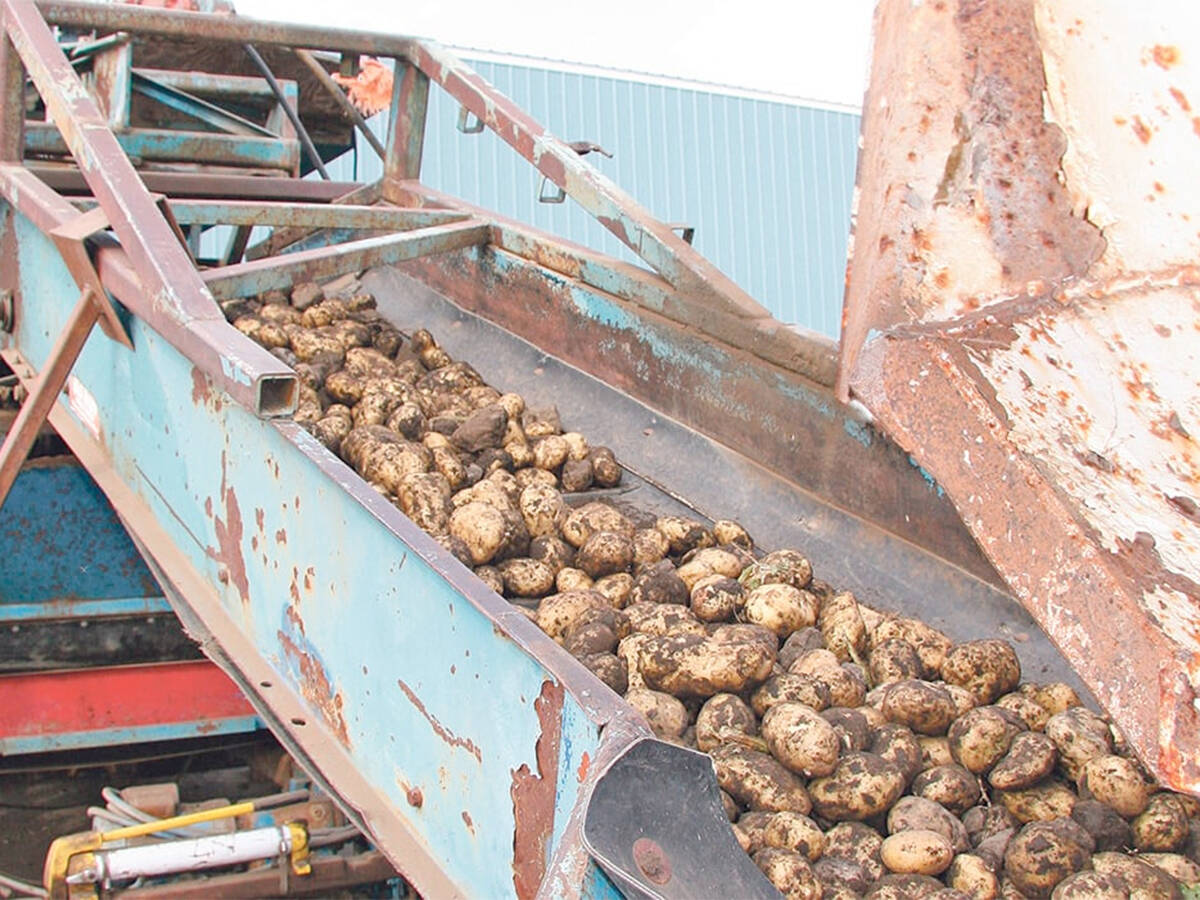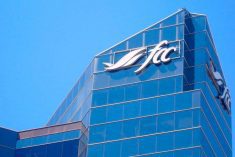Navigating the landscape of grants that may be available to the farm is no small challenge. To start with, it’s confusing.
OFCAF, RALP, OFEP — there’s an alphabet soup’s worth of agricultural loans and grants available in Canada today and we’re not talking about a few measly bucks. The On-Farm Climate Action Fund (OFCAF) alone offers up to $75,000 per farm for emission-reduction projects.
With so much cash up for grabs, one might think producers would apply to every grant program for which they’re eligible. But it’s not that simple. Depending on the program, grant applications can take a lot of time and paperwork.
Read Also

Potato growers beware new PVY strains
Newer strains of potato virus Y (PVY) are creating headaches for potato farms in Eastern Canada, and Manitoba farmers should pay attention
Why it matters: Funding, particularly for sustainability projects is available, but farmers need to know what’s out there and how to access it.
Help is available. Karlene Yakemchuk from Hairy Hill, Alta., is a farm management consultant who helps farmers make grant applications, and she’s not the only one.
The owner of Scattered Spruce Ag Services offered an audience at Farming Forward, an event under Edmonton’s Farmfair International umbrella, some tips on what to look for in a consultant to get the most value from grant applications.
“As we know, it’s a stack of paperwork and a lot of complicated words and you’re not sure what’s eligible,” she said. ”Because I am very much aware that I can’t help everyone in this room, or I may not be the right fit for you … what I’m going to say is there are a few things that I do recommend when you’re looking for a consultant to help you on the grant journey.”
Credentials matter
Consultants with Professional Agrologist (PAg) or Certified Crop Adviser (CCA) designations are usually farmers’ best bets when they need help with a grant application, said Yakemchuk, who has both.
Some program administrators such as RDAR, which oversees OFCAF in Alberta, require sign-off by someone with at least one of those credentials. Otherwise, PAgs and CCAs are generally good choices because they know their stuff, said Yakemchuk.
“That means basically that they’ve done the education. They’ve done the time. They’re continuing to improve themselves. They’re learning more every year. They’re not stagnant.”
Some agricultural grant writers who lack these credentials may be competent but still not fulfil the requirements of program administrators, she said.
“That just means that whatever they’re charging you, ultimately you’re not going to get back from the program if they don’t have those letters behind their names.”
Look at their fees
There are bad actors in all walks of life and consultancy is no exception. Farmers should vet the fees carefully and know the industry baselines, said Yakemchuk. To that point, she said a normal hourly rate for a PAg or CCA, based on her experience, ranges from $100 to $300 per hour.
“There are some people out there that really took advantage of all the programs and just said ‘I’m going to charge you the $2,000 maximum for everything right off the hop’ without reading the fine print. So they were charging farmers through the nose just for their sign-off. I’m a farmer too (and) I’d be cheesed.”
Included services
Services provided by a consultant can range from the bare minimum to a full package deal. Yakemchuk said farmers need to know what a consultant will do before they’re surprised by a refusal.
This due diligence is especially crucial with programs that require participants to front their project costs in exchange for later reimbursement, usually at a percentage.
“Are they just putting in an application for you … and then you’re on your own? Or are you getting the full service of application questions being answered (including) public reporting so that everything is kosher and you get your money back at the end?
“So make sure that you understand what their knowledge base is. They may have the credentials and they may say, ‘yeah, I’ll help you. I’ll sign off.’ But they really may not be able to help you with the most important part, which is getting your money back and getting your reporting done.”
Success rate
Don’t be afraid to ask a consultant about their successes and failures, she advises.
“If they’re not willing to tell you where their fumbles have been or anything that’s maybe been unsuccessful for them, it’s probably fair enough to walk away.”
















